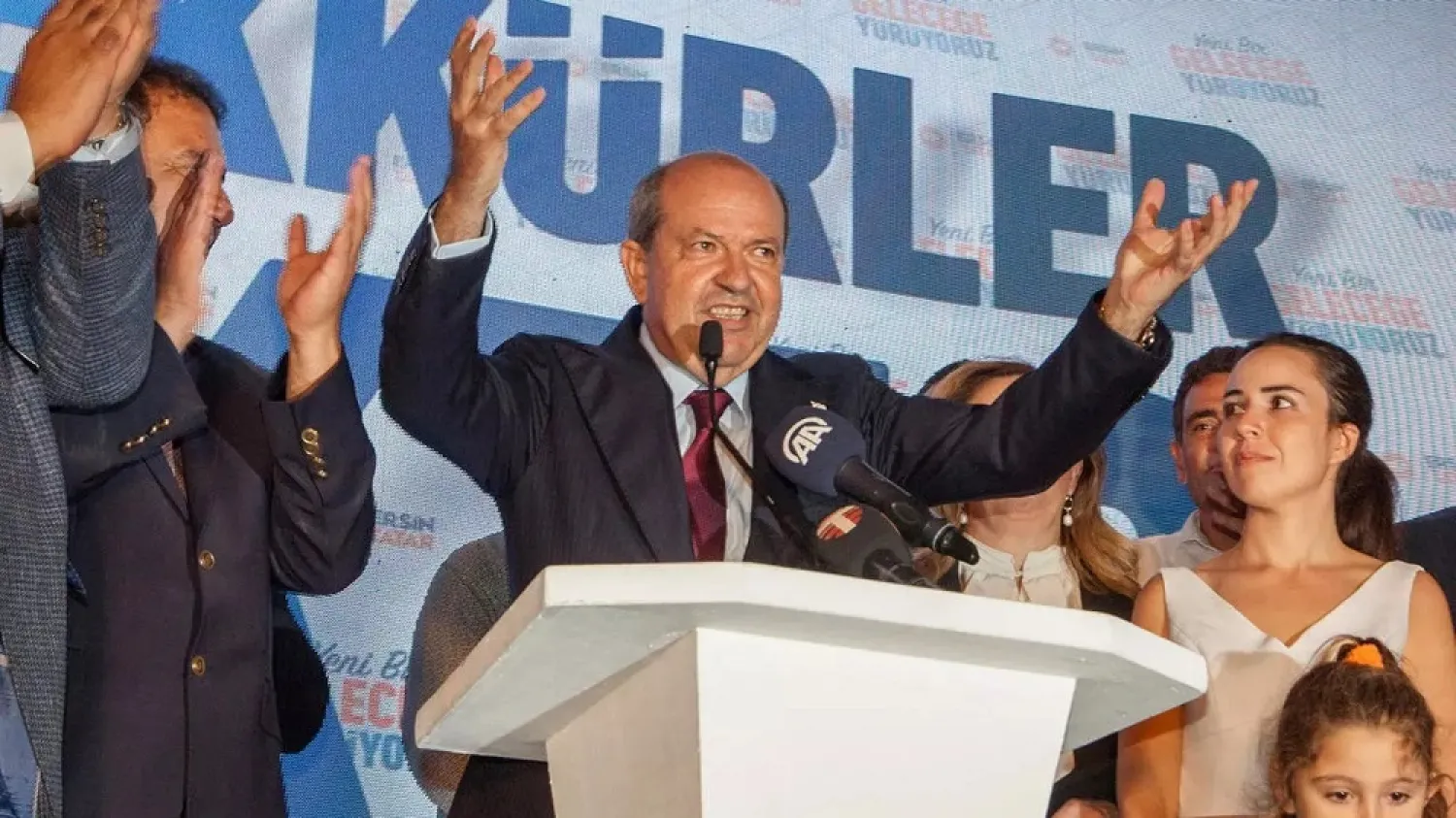Breakaway northern Cyprus has elected the Ankara-backed right-wing nationalist Ersin Tatar as its leader in a surprise win at a time of heightened tensions in the eastern Mediterranean.
Tatar, 60, clinched victory late Sunday in a second round of the "presidential" election in the self-proclaimed Turkish Republic of Northern Cyprus (TRNC).
The Cambridge-educated chartered accountant won 51.7 percent of the vote.
With Turkey an increasingly assertive regional actor, Tatar's win could help shift the balance of power in the region and impact reunification efforts for divided Cyprus.
Why did Tatar win?
Tatar won the first-round vote on October 11 with 32 percent, ahead of outgoing leader Mustafa Akinci who won 30 percent.
Akinci's relationship with Ankara had come under strain, especially after he described the prospect of the north's annexation by Turkey as "horrible" in February.
But while Akinci had secured the backing of Tufan Erhurman -- a fellow social democrat who came third in the first round -- that support was not enough.
Political scientist Mete Hatay, from the PRIO Cyprus Centre, said it was Turkish settlers and immigrants with TRNC citizenship --- making up nearly a third of voters -- that tipped the balance.
"Settlers' votes went to Ersin Tatar, especially in rural areas," Hatay said.
Support for Tatar from Turkish President Recep Tayyip Erdogan was also key.
Days before the first round, Tatar had announced -- from Ankara, along with Erdogan -- the partial reopening of the fenced-off seaside ghost town of Varosha for the first time since Turkish forces invaded the north in 1974.
Turkey has also supplied northern Cyprus with a 100-bed hospital for coronavirus cases and fixed an undersea freshwater pipeline.
When Akinci admitted defeat, he referred to Turkish interventions in the election.
Last week, he claimed that pro-Turkish media were carrying out a "disinformation campaign" and that he had received threats urging him to withdraw.
What does it mean for Cyprus' future?
Cyprus has been divided since Turkey invaded and occupied its northern third in 1974 in reaction to a Greek-engineered coup aiming to annex the island.
The TRNC, now with a population of about 300,000, is recognized only by Turkey.
The Republic of Cyprus, which is in control of the mainly Greek-speaking south, has been a European Union member since 2004.
The two sides are separated by a UN-patrolled buffer zone.
The last attempt at UN-mediated negotiations collapsed in Switzerland in July 2017.
While Akinci had revived hopes for reunification by advocating the creation of a federal state, Tatar defends a two-state solution.
In his victory speech, Tatar said he would return to the negotiating table "when necessary", but said that Turkish Cypriots would "not compromise" on certain points essential to their "sovereignty".
"Our neighbors in the south and world community should respect our fight for freedom," Tatar said.
The UN is expected to convene a meeting between the two sides, Turkey, Greece -- the key ally of Greek Cypriots -- as well as former colonial ruler Britain.
On Monday, Cyprus President Nicos Anastasiades called on Tatar to back the UN-led peace initiative, after Turkey's Erdogan had said earlier he would work with Tatar "to resolve the Cyprus issue".
A spokesman for Anastasiades' government later said that the Greek-Cypriot president and Tatar had agreed to meet in the UN buffer zone, at an undecided date.
The TRNC is already economically and politically dependent on Turkey -- not least because some 30,000 Turkish troops are on Cypriot soil.
Tatar's win is expected to deepen those ties further -- with some fearing the specter of annexation.
"Anything is possible nowadays in this crazy world," Hatay said, but added he did not see annexation imminently.
"They have to get Turkish Cypriots on board for that, and even those who support Tatar are not ready at this stage," he said.
What impact for the Eastern Med?
Northern Cyprus is a centerpiece of Turkey's strategy in the eastern Mediterranean, including a bitter dispute with Greece and Cyprus over oil and gas reserves.
The EU has deplored Turkey's drilling for hydrocarbons in disputed waters and warned Ankara against further "provocations".
In a call with Tatar after his victory, Erdogan said their cooperation would continue -- "starting with activities related to hydrocarbons".
But new leadership could also bring a chance of fresh talks. UN-led discussions on Cyprus will bring Greece and Turkey to the same table -- and that could help talks on wider issues, analysts say.
"This process will not only be about solving Cyprus problem," Hatay said. "It will also be about easing the tensions in the region."









